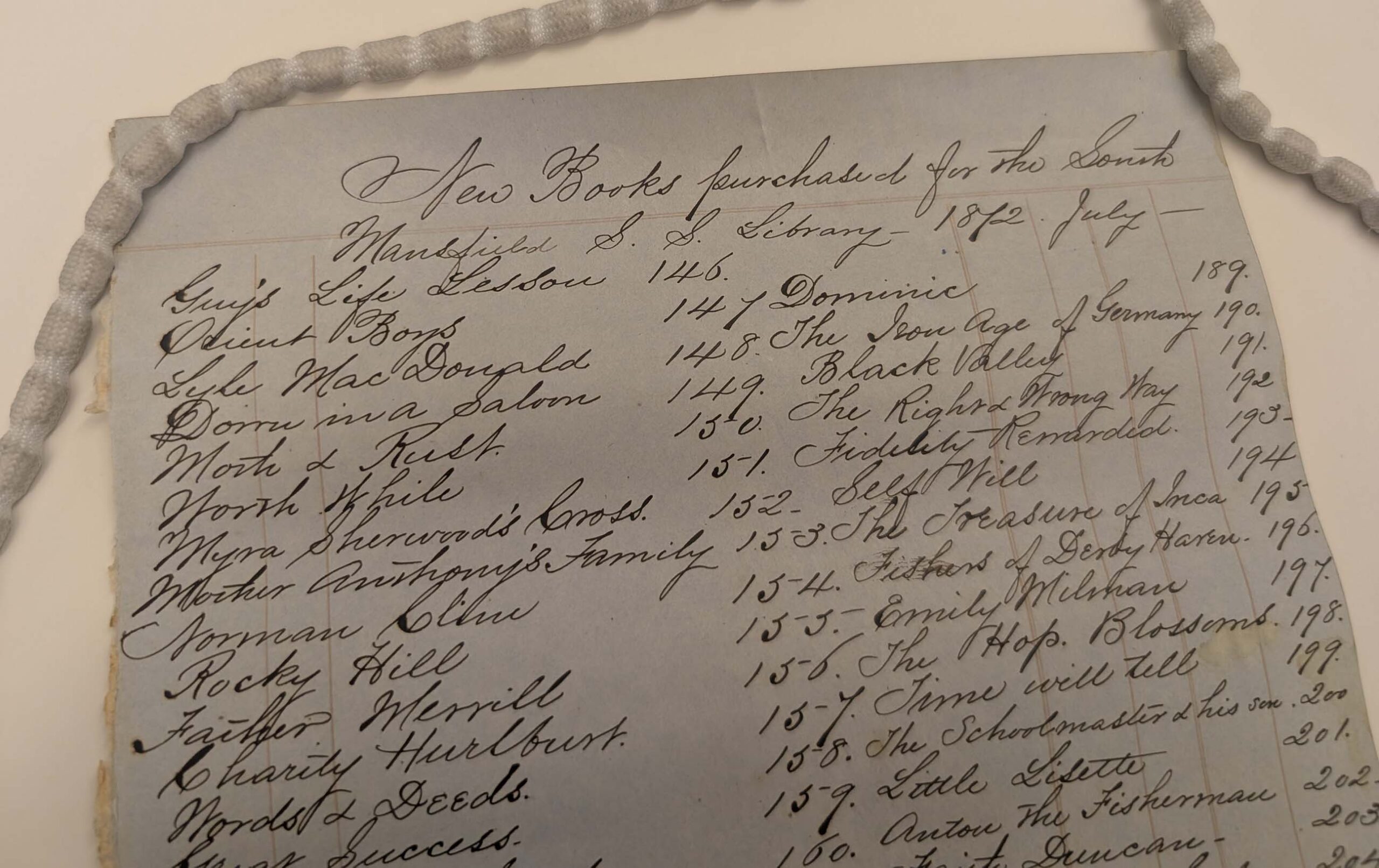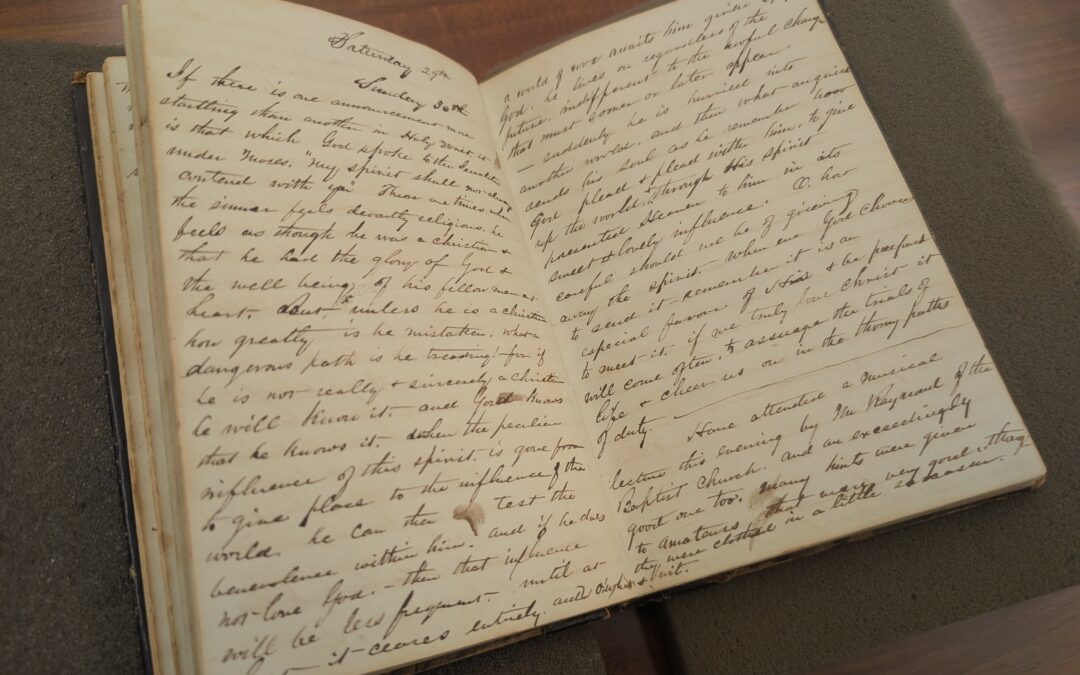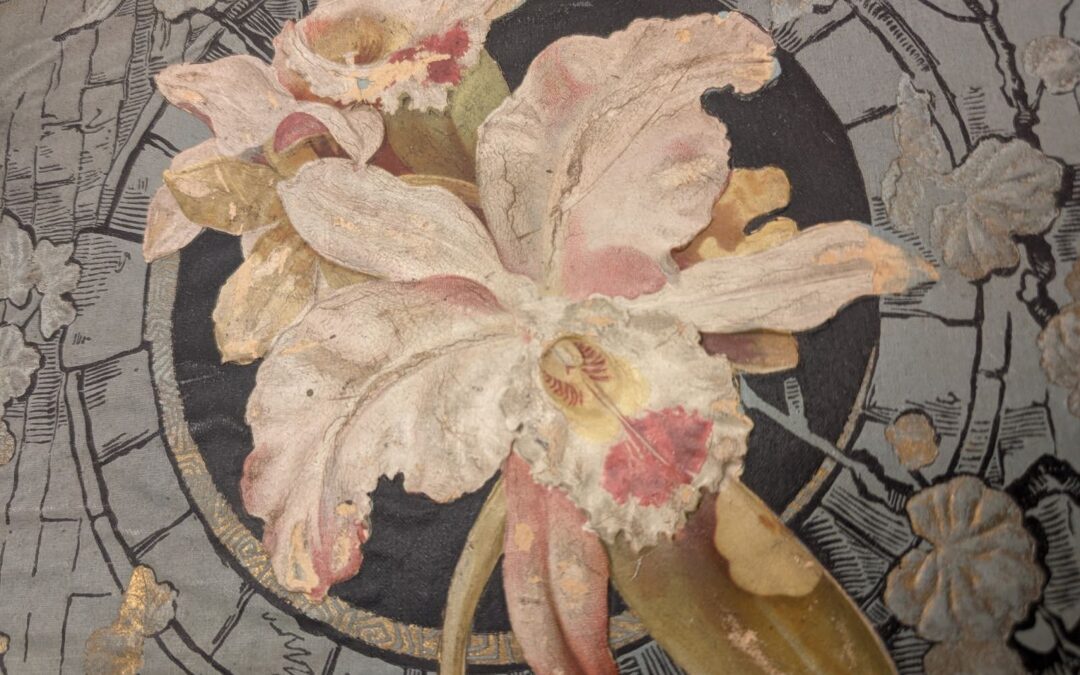
by Clements Library | Feb 19, 2025 | Collections, Library Work, Manuscripts
From the diary of a member of the Midland Baseball Club of Oxford to the papers of British Consul-General James Colquhoun, the Manuscripts Department has made a wide variety of collections available for research this month.

by Clements Library | Jan 6, 2025 | Acquisitions, Collections, Library Work, Manuscripts, News
The Manuscripts Department has been hard at work making historic hand-written materials available for research. Check out sixteen new finding aids published this past December!
![[Transcriptions]: Trading Pumpkins for Medical Care in 1850s New Hampshire](https://clements.umich.edu/wp-content/uploads/2024/12/20241030_125224-1080x675.jpg)
by Cheney Schopieray | Dec 6, 2024 | Collections, Library Work, Manuscripts
One of the many professions represented in the wealth of account books at the Clements Library is that of the country doctor. Here, for example, is a page from the ledger of Dr. Josiah Morse of Stewartstown, New Hampshire, whose patient network extended well beyond the boundaries of his hometown. The following transcribed excerpt shows interactions between John Lamphier of Canaan, Vermont, and Dr. Morse.

by Clements Library | Nov 11, 2024 | Acquisitions, Collections, Manuscripts
Lee Rucker Keiser writes about her mother, Marion E. Grusky Rucker, a World War II veteran, teacher, and beloved family member. Read about Marion’s service in the U.S. Navy, teaching abroad, and Lee’s decision to donate her mother’s papers to the William L. Clements Library.
![[Transcriptions]: Grimké and Weld Women Vote in Hyde Park, Massachusetts, March 7, 1870](https://clements.umich.edu/wp-content/uploads/2024/11/sarah-cropped.jpg)
by Cheney Schopieray | Nov 5, 2024 | Collections, Library Work, Manuscripts
Sarah Grimké Weld was 25 years old when she wrote the following letter to William Hamilton. She, along with her mother Angelina Weld and aunt Sarah M. Grimké marched with around 50 other women to vote in local elections at Hyde Park on March 7, 1870. In this letter to her friend and future husband, she explained the significance and purpose of the vote, commented on her dentist’s affection for her (which she rejected), and updated him on her work at the Woman’s Journal.
![[Transcriptions]: A Clerk’s Harrowing Account of the 1880 U.S. Election, Madison County, Florida](https://clements.umich.edu/wp-content/uploads/2024/11/20241030_162448-1080x675.jpg)
by Cheney Schopieray | Nov 4, 2024 | Collections, Library Work, Manuscripts
Read a letter written by John P. Varnum, a 26-year-old who tried to establish a political and legal career in Florida in the 1870s. During the 1880 U.S. election, Varnum collected and counted ballots in Madison County, Florida. In this harrowing letter to his wife Josephine, Varnum described crowds of African American men protecting him against violence, and coordinated efforts to suppress Black votes through deception, fraudulent voting, and attempted murder. He wrote about calls for recounts and ballots printed on different types of paper to allow blindfolded men to favor one party over the other for discarding.

by Clements Library | Oct 8, 2024 | Acquisitions, Collections, Library Work, Manuscripts, News
Explore these 25 new finding aids published in the summer of 2024. The collection continues to grow in exciting ways, ranging from a visually rich archive of an inventor advertising and selling his wares to the case notes kept by a woman advocating for the care of children in Washington, D.C. Should anything prove relevant to your interests, don’t hesitate to plan a research visit or contact us to learn more.

by Clements Library | Oct 1, 2024 | Collections, Manuscripts, Maps
Buried within a small, leather-bound memorandum book that’s part of the Hudson’s Bay Company materials at the William L. Clements Library lies a two-page map, charted circa 1779 by John Thomas of London, depicting a consequential but nonexistent waterway connecting Lake Superior with Hudson’s Bay. The search for this fictitious waterway led to the aggressive expansion of the HBC. Read on to learn more.

by Clements Library | Sep 5, 2024 | Acquisitions, Collections, Library Work, Manuscripts, News
The William L. Clements Library’s collections continue to grow, helping researchers and students study the rich and diverse American past. The collections described below touch on a wide range of topics, including spiritualism, crime, children and education, business, military and international affairs, and book trades and print culture. This includes the diary of Achsa W. Sprague, Etna Bittenbender’s case statements, and various drawings and penmanship books from the 1800s. Read more to see what catches your interest!



![[Transcriptions]: Trading Pumpkins for Medical Care in 1850s New Hampshire](https://clements.umich.edu/wp-content/uploads/2024/12/20241030_125224-1080x675.jpg)

![[Transcriptions]: Grimké and Weld Women Vote in Hyde Park, Massachusetts, March 7, 1870](https://clements.umich.edu/wp-content/uploads/2024/11/sarah-cropped.jpg)
![[Transcriptions]: A Clerk’s Harrowing Account of the 1880 U.S. Election, Madison County, Florida](https://clements.umich.edu/wp-content/uploads/2024/11/20241030_162448-1080x675.jpg)


